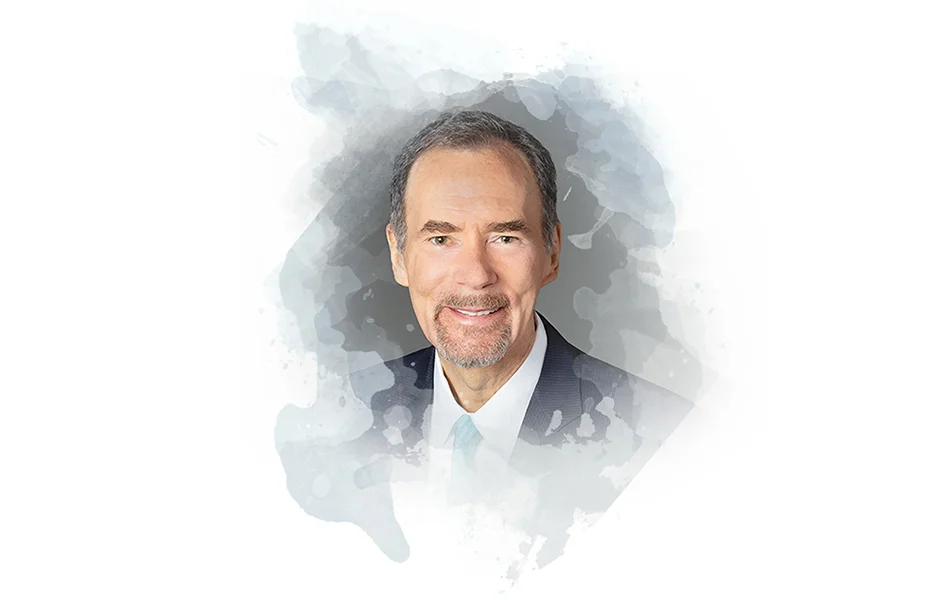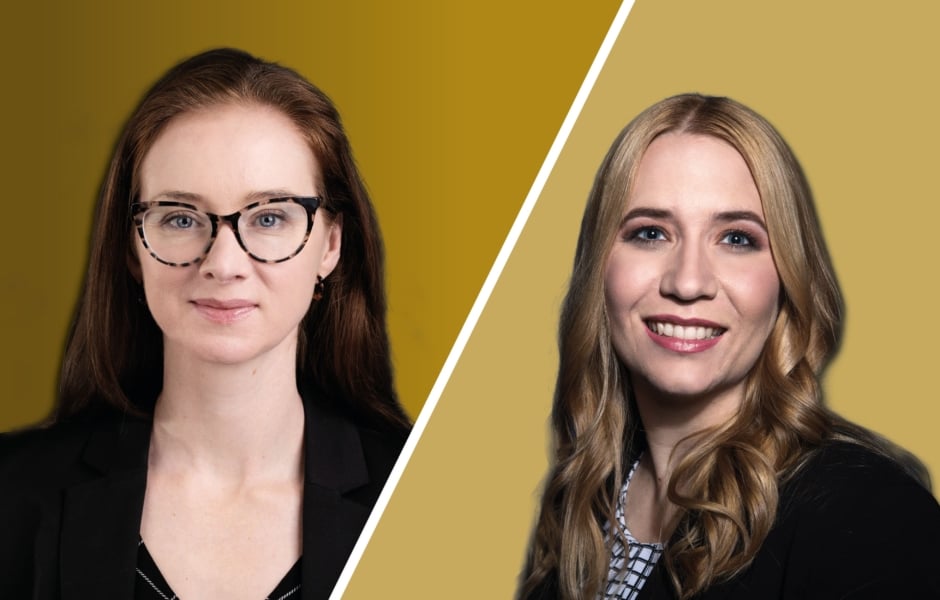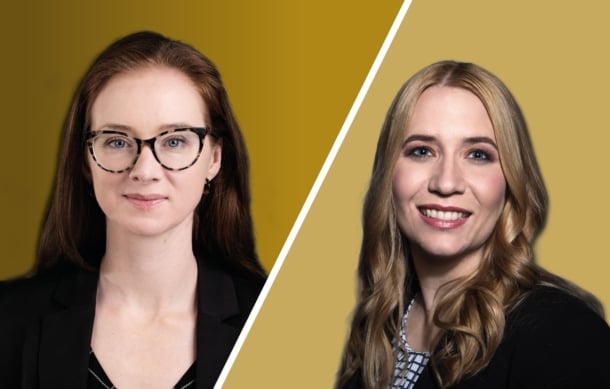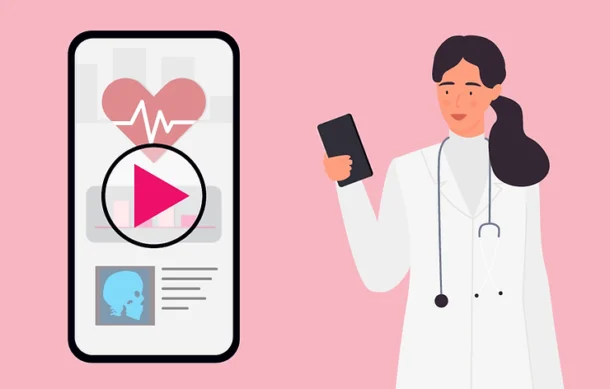Interview by GOLD
Mace Rothenberg, Chief Medical Officer, Pfizer, speaks to us about his sustained passion for advancing the field of oncology, the importance of diverse representation in patient groups, and the challenges of balancing lifespan with health span.
I enjoy research and interacting with patients, and in clinical research and drug development, you get to combine both those elements
What drew you to research, the focus of your early career, and how has your passion for medicine been sustained over the past 40 years?
My attraction to research began during my specialty registrar training when I was assigned to the oncology in-patient unit. The patients were so sick and the therapies were so limited, but what really caught my attention was that we had access to new therapies that had not been available 5 years earlier. While some people viewed oncology as a depressing and hopeless area, that experience gave me a very different perspective. I saw it to be a hopeful and promising area with the potential for better outcomes with newer therapies.
My whole career has been focussed on questioning how we can develop therapies that enable us to do better. It just so happened that my career coincided with a time of dramatic advancement in our understanding of cancer and translation of those insights into highly effective treatments. When I began my career, the 5-year survival rate for people with cancer was less than 50%. Today, it’s nearly 70%. Oncology is no longer an area that people view with pessimism, but one that they look to for hope, seeing how new technologies can vastly transform the outcome of a disease.
Having overseen the development of many oncology drugs, how has the evolution of clinical trials changed over the course of your career?
I enjoy research and interacting with patients, and in clinical research and drug development, you get to combine both of those elements. Early in my career, clinical trials were designed to answer very specific clinical questions: Did a therapy cause the tumours to shrink and if so, in what proportion of patients? Did it allow patients to live longer, without the disease progressing? But one thing that we couldn’t answer was ‘why’: Why did a drug work in some patients but not in others? Why did a drug that seemed to work for a period of time stop working? The answers to those questions lay in the laboratory. We recognised that these were in separate domains but that they could be linked through what is called “translational research”. Questions from one domain could help inform the other. It goes in both directions; we learn as much from new insights into the disease, biology, and genetics and how we can apply them to patient selection and treatment, as we do from obtaining patient samples and analysing them in the laboratory. That’s how my career evolved from clinical to more translational research and enabled richer insights and answers to those questions.
When developing cancer treatments, is it challenging to strike a balance between health span and lifespan?
This is an interesting question, especially since early on in my oncology training, the prevailing hypothesis was that we weren’t giving patients high enough doses of chemotherapy to cure them. As a famous oncologist once said: ‘We were killing patients with our kindness.’ We weren’t giving high enough doses of chemotherapy for our patients to get the full benefit possible. Unfortunately, the side effects from high-dose chemotherapy were daunting and we were bringing patients to the brink of what their bodies could sustain. While that approach was appropriate for a small segment of cancers, it was not the correct approach for many others and it forced us to evolve our thinking. I was never quite comfortable with pushing chemotherapy to its limits because if you achieve your goal and prolong survival at the cost of terrible toxicity, with much of that time spent in the hospital or feeling ill, what were you really gaining? What was the true benefit to the patient? It was important to measure not only what the new therapy was doing to the tumour, but what it was doing to the patient. Being able to examine that in a more systematic way and being aware of both elements ensures that the therapies that we are developing today truly have a positive benefit-risk relationship for the patient.
Since joining Pfizer last year, what have you been most surprised by and which accomplishments are you most proud of?
Number one has been working with an incredibly talented and knowledgeable group of people. I have been very privileged to learn so much from them. My whole career prior to my current role was focussed on drug development; understanding what a new therapy could do to slow or halt the progression of a certain cancer. Now, my responsibility is to ensure that we have enough information on the impact of a medicine, both in terms of benefits and risks, to allow patients, physicians, and pharmacists to make informed decisions. My responsibilities include making sure that we have complete, accurate, and up-to-date information on all of Pfizer’s medicines, whether they’re just entering into clinical testing or they’ve been on the market for many years. It’s been something that I’ve really enjoyed because it puts the patient at the centre of the decision-making process.
What more can be done to encourage patients to take ownership of their health through smarter lifestyle choices, to lower the risk of overstretching our healthcare systems?
There are two main factors driving this. One is understanding that the decisions we make today about our health, practices like not smoking or drinking too much and exercising, will have a big impact on our long-term health. Some people are able to follow these guidelines better than others; while some do things that feel good now and will worry about the future later, others are able to moderate things appropriately and will reap the long-term benefits in years from now. The other element is understanding the quality of the medical information that is available and putting it into its proper context. We see this especially around COVID-19, where we are being bombarded with information, numbers, and statistics on a daily basis. One of the things all of us in the medical profession can do is to try and make new medical information understandable and accessible to individuals who don’t have a medical background and who aren’t experts in epidemiology or medicine. I’ve tried to do that in the COVID-19 ‘Be Smart. Be Safe. Be Well’ video series we have created, to add context and help the general public understand where we are in the course of this pandemic.
Why is diverse representation of patient groups so important when developing and bringing a new drug to market?
We have to acknowledge a paradox that exists in new drug development. When we are developing a new therapy, we try and isolate the effect of the agent on a particular disease and remove as many confounding or extraneous factors as possible. Basically, we’re looking for people who are ill, or at risk, for a particular disease but are otherwise perfectly healthy. The thinking is that by doing so, we will get a more accurate assessment of the effects – both good and bad – of the new drug. But that is not the real world; most people don’t have a single illness, they have several. When we bring our medicines to market based on clinical trials that were conducted on just a subset of patients, we may not have fully characterised that medicine. For instance, there may be side effects of the medicines that we didn’t observe in these trials because the patients enrolled didn’t fully reflect the population that would eventually receive our medicines. Government, sponsors, and academia are now embracing the idea that we should broaden the criteria and reduce some of these stringent requirements to allow people into the trials who better represent the general population. From concurrent illnesses, to age, ethnicity, and geographic location, it is important for us to get as broad an experience as early in the development of a new medicine as possible.
If you weren’t working in the healthcare industry, what career path do you think you would have taken, especially considering that you hold an honours degree in Art?
I have to admit that I’m not a very good artist. I am, however, an amateur mixologist and that’s something that I quite enjoy doing in my leisure time! But if I wasn’t in medicine, I think I would work in communications. When I was a student, it was such a delight to hear a lecture on a complex topic given by somebody who made the topic accessible, simple, and logical. There was a beauty to it and I left feeling uplifted. When that wasn’t that case, I didn’t learn as well and left feeling cheated and uninspired. Over the course of my career, I’ve had the privilege of working with a number of excellent communicators. I would not only listen to what they had to say, but how they were saying it. They helped me realise how important it is to know your audience, speak in a way that conveys information in context, and highlight the most important parts so that the audience leaves feeling not just informed, but inspired.






